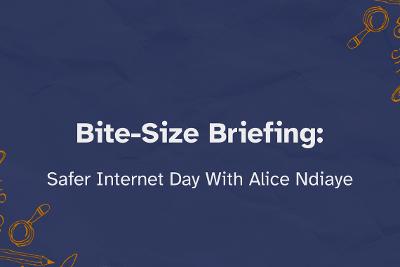Safer Internet Day 2025
Safer Internet Day 2025 will take place on the 11th of February 2025, with celebrations and learning based around the theme 'Too good to be true? Protecting yourself and others from scams online

Safer Internet Day is a global initiative that takes place annually in February to promote the safer and more responsible use of online technology, especially among children and young people. The day aims to raise awareness of emerging online issues and encourages everyone to contribute to creating a better internet environment.
Watch the briefing which has an accompanying Padlet of resources to help you use all the local and national resources available, with all the teaching and learning activities needed to captivate and inform children and young people.
- UK Safer Internet Centre (UKSIC),
- Safer Internet Day website
- Twinkl
- The PSHE Association:'What is AI?'
We hope you have an enjoyable and impactful Safer Internet Day!
Please ensure pupils are supported by:
- Letting pupils know where they can seek help and further advice, now and in the future, if they have questions or concerns related to artificial intelligence (AI) or other aspects of digital and media literacy.
- Remind pupils that they can ask for help and advice from trusted adults at home, in school or from appropriate organisations.
- Sharing the websites of the following organisations with pupils:
NCC's Safeguarding in Education Team run termly 'CEOP training and online safety action planning' courses. You can find upcoming dates and book here.
If you have any questions or would like support to develop and improve your school or setting's RSHE provision, please contact our new families and professionals phoneline: 0333 3137165.




